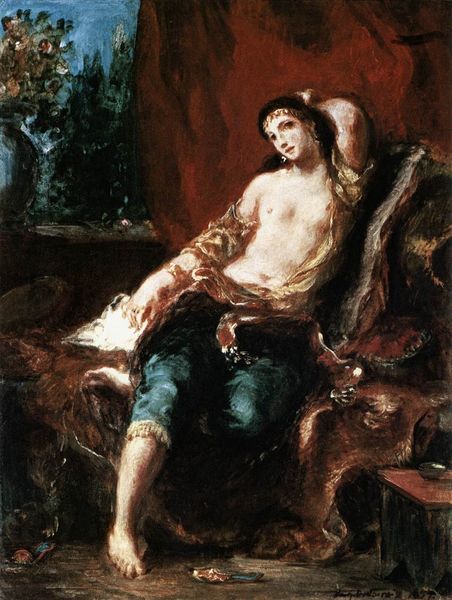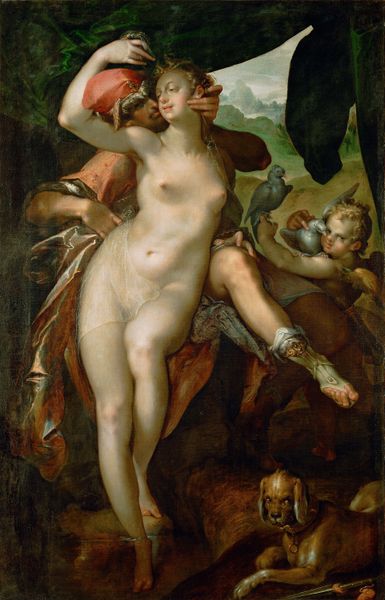
David with the Head of Goliath 1625
0:00
0:00
gianlorenzobernini
National Gallery of Ancient Art (GNAA), Rome, Italy
painting
#
portrait
#
baroque
#
painting
#
figuration
#
christianity
#
history-painting
#
academic-art
Dimensions: 65.5 x 75 cm
Copyright: Public domain
Editor: Here we have "David with the Head of Goliath" painted around 1625 by Gian Lorenzo Bernini. I’m struck by David's expression, which is not triumphant, but almost…disturbed. How do you interpret this work? Curator: Indeed. It's fascinating how Bernini, primarily known as a sculptor, infuses this painting with psychological complexity. The visual language is laden with symbolism beyond the obvious biblical narrative. Consider the dark background against David’s illuminated figure, almost like a halo. Editor: Yes, that contrast really highlights his youth and…vulnerability, perhaps? Is that intentional, to show more than just David as a conquering hero? Curator: Precisely! Look closely at Goliath's head. It’s not just a trophy, but a weighty emblem. Notice how David grips the hair. It symbolizes the tangible burden of leadership, victory, and its psychological aftermath. The baroque painters loved to show raw emotion and intense moments in the protagonists' faces. Do you get the same impression? Editor: Yes, I can see how David seems to be processing something profound rather than reveling in victory. He almost looks like he is turning towards his own humanity, leaving childhood behind. Curator: He seems suspended between boy and man, triumph and trauma. This suspension became a defining motif of the baroque period's emphasis on spiritual exploration and transformation through art. It's an interplay between the heroic and the human that invites deeper contemplation. Editor: I see now. I hadn't considered all of these subtle symbolic details before. Thanks! Curator: My pleasure! It’s these visual echoes that resonate across centuries, keeping cultural memories alive.
Comments
No comments
Be the first to comment and join the conversation on the ultimate creative platform.













